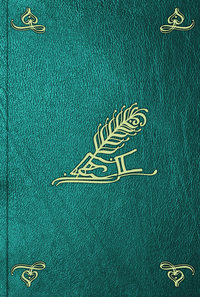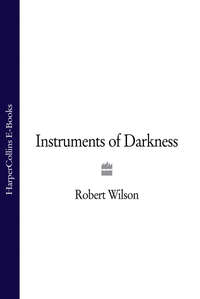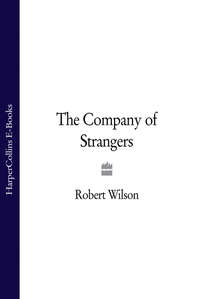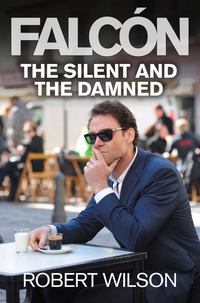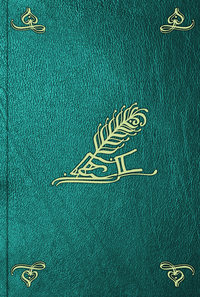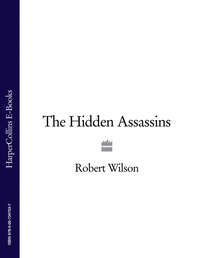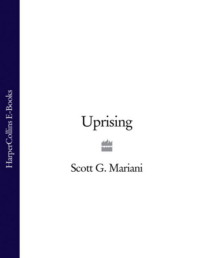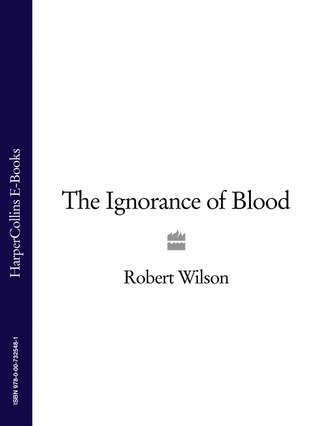
Полная версия
The Ignorance of Blood
‘They've taken my boy away from me,’ said Yacoub, who shaded his eyes and sobbed again, before coming back at Falcón, angry. ‘He's in one of their camps. That's 24/7. When they're not running over hills and assault courses, they're doing weapons training and bomb-making. And when that's all over, they're plugged into radical Islam. I have no idea what is going to come back to me, but I'm sure it won't be the Abdullah I knew. It will be their Abdullah. And then how will I live? Looking over my shoulder at my own son?’
The enormity of Yacoub's predicament hit Falcón hard. Three months ago he'd asked Yacoub to make what should have been a personal step towards embracing radical Islam. He had been stunned at the rapidity with which Yacoub had been taken deep inside the GICM organization. It could only mean that he had something that they wanted. And now the GICM were protecting themselves and it meant enclosing not just Yacoub but his whole family as well. And, worse still, there was no way out. Radical Islam was not something you changed your mind about. Once admitted to the close fraternity and their secrets there was no walking away. They wouldn't let you. It wasn't so different – and Falcón couldn't believe he was thinking this – to being part of a mafia family.
‘You don't have to say anything, Javier. There's nothing to say,’ said Yacoub. ‘I just needed to tell someone and you're the only person I've got.’
‘You don't want me to talk to Pablo at the CNI about this?’
‘Pablo? What happened to Juan?’ said Yacoub. ‘Juan was the old, experienced guy.’
‘Juan was given early retirement last week,’ said Falcón. ‘He'd blown it over Madrid and their assessment of his work in the Seville bombing wasn't so good either. Pablo's good. Forty-two years old. Very experienced in North Africa. Totally committed.’
‘No, Javier, you must not tell anyone,’ said Yacoub, the flat of his hand taking on the threat of a chopping blade. ‘If you do they will only use it. That is how these intelligence people think: He's vulnerable, let's use it. You won't use it. I know that. And that's why you always have to be there between me and them. You are, and will be, the only one who truly understands my situation.’
Something like a cramp started up in Falcón's guts. This was different to the dead weight of his responsibility in this matter. That was just a few more rocks in the already unwieldy rucksack. This was the knot of fear making itself felt. Now he was being forced into the unique position of having to decide whether Yacoub was reliable or not. Given the choice between his son, Abdullah, and the anonymous face of the Spanish intelligence agency, there would be no doubt who Yacoub would choose. He'd said it from the very beginning and the CNI had accepted those terms.
‘What can I do to make your situation any easier?’ asked Falcón.
‘You're a good friend, Javier. The only true friend I've got,’ said Yacoub. ‘You will be the one to help me with the plan to save my son.’
‘I doubt he could walk away from being a mujahideen very easily, especially after he's been to one of their camps.’
‘I think the only way would be for him to be arrested on his way to a mission,’ said Yacoub.
‘Those would be extraordinary circumstances,’ said Falcón. ‘For the GICM to let you know what was being planned … unless you were directly involved.’
‘There you have it, Javier,’ said Yacoub. ‘It would also depend very much on whether my survival is considered critical.’
Falcón and Yacoub looked at each other for some time, smoke steadily rising from Yacoub's fingers and dissipating over his shaven head.
‘What?’ asked Yacoub.
‘I can't believe you said those words.’
‘We were naïve, Javier. We have absurdly idealistic minds. It was no accident that you were chosen to recruit me. All these agencies have people specifically employed to size you up, to perceive whether you have the necessary strengths and weaknesses for the work required of you. And I'm not talking about whether you're a good manager of people or handle stress well, but whether, under the right circumstances, you could torture a man to get the necessary information or …’
‘Or be ingenuous enough to be completely malleable, or perhaps, utterly predictable?’ said Falcón.
‘The CNI saw in you a need. They knew your history. They knew that you no longer viewed the world in the blinkered way that most people see it, that you demanded a different perspective. They fed it to you. You fed it to me. We didn't know the sort of people we were dealing with. Possibly we imagined that they might be like ourselves, and we could enter their world beneath the surface of everyday life and change things. And what happens? We meet completely ruthless minds who beat us into corners and force us to behave – or else.’
Falcón looked around the darkened room. Their situation – meeting in an anonymous Madrid apartment to discuss unseen dramatic developments – was so far removed from real life that he was suddenly desperate for the surface; but like the diver surrounded by sharks, who still needed to decompress, he had to hold the line, not panic.
‘You envisage a situation where you will give us information about an imminent attack, which will enable us to intercept Abdullah's group and arrest him, but…’
‘It will irrevocably undermine my position in the GICM and I will be immediately executed.’
‘No,’ said Falcón.
‘Yes,’ said Yacoub. ‘It's the only way.’
‘But you realize all that will happen is that Abdullah will end up in jail, where he will gravitate to the radical elements which exist in Spanish prisons, and he will come out even more zealous than he went in. Having done his time he will be welcomed back into the group, and all you will have achieved is your own death,’ said Falcón. ‘You have to let me draw on some experience in this matter. Pablo and others in the CNI must have come across this type of situation before. They will have ideas on how to handle it.’
‘You're my friend,’ said Yacoub. ‘I'm in this because of you. By that I mean I wanted to do this and you were the only one I could trust. I don't want you to start talking to others. As soon as you do that, I lose control and they start to run the situation; and believe me, they will look after their own interests, not mine. Before you know it, we'll be in a hall of mirrors, not knowing which way to turn. And this is my son, Javier. I can't allow him to be sucked in, manipulated, turned into a piece of the game, a fanatic's mass murderer, who will imagine in his adolescent mind that in killing and maiming…’
‘Yacoub, you're letting this get out of control in your mind.’
‘This is my Moroccan side,’ he said, leaping to his feet and pacing around the room, scratching at childhood scars on his head which had been laid bare by the severity of his haircut. ‘I get very emotional. I can't seem to calm myself down, or rather, I can calm down. I do calm down. And you know how I do it?’
Falcón waited for him to come back into his line of sight, but Yacoub leaned over the back of the armchair, his face so close the tobacco breath was sharp in Falcón's nostrils. ‘I imagine Abdullah safe … away from all this … this madness. I imagine myself under a funeral shroud and able to see the sun coming through the cotton, the breeze playing over the material, and I am at peace for the first time in my life.’
‘Try an alternative vision, Yacoub. Don't be so fatalistic. Imagine yourself at home with Abdullah, his wife and your grandchildren on your lap. Try achieving that instead of your death and his incarceration.’
‘I would, if it wasn't such an absurd dream, an impossible ideal, Javier,’ said Yacoub. ‘The boy is already a part of their organization. He has no thoughts for girls, wives, children. Normal life has become a miserable existence to him. He despises his carefree childhood. He mourns the lost hours spent on his Gameboy. His whole adolescence is a tragedy of unconsciousness to him now. There's no question of bringing him back. The irony of it all is that, in joining himself to this new world, he has, to me, become a lost soul. He wanders a world of death, destruction and martyrdom. While my stomach heaves at the thought of a market in Baghdad with two hundred dead women and children, the whole area a blackened, smoking charnel house, Abdullah smiles beatifically at the imagined grace of the martyr who has committed this godless atrocity.’
‘So you've seen him again since he went to this training camp a week ago?’ asked Falcón, confused at how Yacoub could have known all this.
‘The purpose of admitting me to the GICM in the first place was primarily to make one of their international attacks possible,’ said Yacoub inconsequentially, buying himself some time. ‘This means, as you know, I have unprecedented access to the military wing of the GICM. As soon as Abdullah told me his news, it was arranged for me to be shown his training camp. I spent some time there. We had a couple of evenings together in which I was able to see the profound change wrought in his young mind.’
‘But you didn't manage to see the commander of the military wing?’
‘No, as I told you, he wasn't there,’ said Yacoub, turning his back on Falcón to stare at the drawn curtains. ‘I had to convey my gratitude for this honour through one of his officers.’
Was that how it happened? thought Falcón as he joined Yacoub by the window. They embraced and he caught sight of his own confused face over Yacoub's shoulder in the only mirror in the room.
‘My friend,’ said Yacoub, his hot breath on Falcón's neck. ‘You know me so well.’
Do I? thought Falcón. Do I?
7
AVE from Madrid to Seville – Friday, 15th September 2006, 22.00 hrs
If on the train journey from Seville to Madrid he'd been slightly feverish with paranoia, then the ride back saw a serious multiplication of the uncertainty parasites in his bloodstream. The darkness rushing past outside meant that all he could see was his disconcerted visage reflected back to him and, with the movement of the train, it seemed to tremble like his vacillating mind.
Not only had Yacoub forbidden him to talk to any of the intelligence officers from the CNI, but he had also already set in motion a plan for extracting Abdullah from the ranks of the GICM. Yacoub had begged the senior officers in the military wing to ask their commander to send his son on a mission as soon as possible, with the condition that he be responsible for its planning, logistics and execution.
‘Why did you do that?’ asked Falcón. ‘The one thing we need in this situation is time.’
‘More important than time, at this stage,’ Yacoub said, ‘is to show them how honoured I am that my son has been chosen. Delay would have meant that suspicion would have come down heavily on me and I would have been excluded from my son's future. This was the only way for me to keep my foot in the door.’
The high command were thinking about it. Yacoub had told Falcón that the following morning he would be flying back to Rabat, where he expected to be told of their decision. None of this was exactly calming, but it wasn't the cause of Falcón's paranoia. That had started with those cramps of fear in his gut. He'd tried to ignore them, like the man with acute appendicitis who'd convinced himself it was just wind, but they'd made him very apprehensive. One moment he was sitting in front of a man who'd become his closest friend, with whom he shared a level of intimacy he'd only ever experienced with the man he'd believed to be his father – Francisco Falcón. And the next there was a person he no longer completely trusted. Doubt had been interposed. That last embrace in front of the closed curtains had been an attempt to reinforce the relationship, but it was as if some impenetrable barrier, like a Kevlar skin, had come between them.
Perhaps that had been the fatal flaw; the only other time he'd experienced this level of intimacy, it had been based on lies and fraudulence: his father had tricked the five-year-old Javier into becoming the agent of his own mother's death. But how could it have been so quick with Yacoub? Suspicion had ripped through him. But why? He replayed the meeting in minute detail, almost frame by frame, to extract every nuance.
The haircut was part of it, or had it become part of it? Was that retrospective suspicion? Yacoub had always liked to keep his luxuriant hair long. Maybe he was just getting into role. In fact, before the haircut was the apartment. He hadn't asked him about it. Whose was it? He'd have to find that out. He called an old detective friend from his Madrid days who was in a bar on his way home. Falcón gave him the address, told him to keep it to himself. He wanted the owner's identity and background and he was to speak to Falcón only, no messages left in the office.
‘I'm not even going to ask,’ said his friend, who told him he'd probably have to wait until Monday now.
Headlights wavered in the blackness of the countryside and swung away. Someone across the aisle was studying him. He got up, walked down the train to the bar, ordered a beer. What else? He took out his notebook, jotted down his thoughts. Trust. Yacoub had kept on at Falcón about how much he trusted him: ‘The only man I can trust … You always have to be between me and them …’ That was where the cramps had started and when he'd first questioned Yacoub's reliability. ‘You're a good friend. The only true friend I've got.’ It was that line which had allowed the ugliest thought to enter his head: Is he using me? Falcón rewound to a question he'd asked: ‘So where's this influence coming from?’ The shrug. Had someone got to Yacoub? He knew the GICM didn't like his relationship with the inspector jefe. Were they breaking it up, and using young Abdullah to do it?
The notes streamed out of his pen. The swearing. The plan. There was no plan, but Yacoub wanted him involved. Why? ‘You're my friend. I'm in this because of you.’ He'd qualified that blame immediately, but there was no doubt that he wanted Falcón to feel culpable. Then there was Yacoub's vision of his own death. Had he overdone the self-pity? Finally, there was the slip. Was it a slip to reveal that he'd seen Abdullah since he'd gone to the training camp? Yacoub was under pressure. The stress of it created emotional extremes and mistakes were made.
He closed the notebook, took a swig of beer. He breathed back a sense of disequilibrium that he couldn't put his finger on. How do you describe that feeling when it occurs to you that your brother might be exploiting you? There was no word for it. It couldn't be that it was so rare that they hadn't bothered to invent it. People were always exploited and betrayed by those closest to them. But what was the word for the feeling of the victim? The Americans have a good word: suckered. Because the feeling was one of being drained, having the marrow sucked out.
He took out his mobile, and it wasn't just for the usual banal exchange that was played out in trains all over the world; he needed to hear the sound of a voice that he believed in and who believed in him. He called Consuelo. Darío, her youngest boy, the eight-year-old, picked up the phone.
‘Hola, Darío, how's it going?’ he said.
‘Javi-i-i,’ screamed Darío. ‘Mamá, mamá, it's Javi.’
‘Bring the phone to the kitchen,’ said Consuelo.
‘Are you good, Darío?’ asked Falcón.
‘I'm good, Javi. Why aren't you here? You should be here. Mamá's been waiting and waiting…’
‘Bring that phone here, Darío!’
He heard the boy sprinting down the corridor. The phone changed hands.
‘I don't want you thinking I'm sitting around here like some lovesick teenager,’ said Consuelo. ‘Darío's been desperate for you to get here.’
‘I'm on the AVE and running late.’
‘He won't go to bed until you arrive, and we're going shopping tomorrow. New football boots.’
‘I've got to see someone in town before I come out to your place,’ said Falcón. ‘It's going to be after midnight before I get to you.’
‘Maybe we should have dinner out,’ said Consuelo. ‘That's a better idea. I really want him to go to bed now. I'll take him next door. He's in love with their sixteen-year-old daughter. Let's do that, Javier.’
‘Tell him I'll have a kick around with him in the garden tomorrow morning.’
A hesitation.
‘You think you're getting lucky tonight?’ she said quietly, teasing.
They hadn't discussed his staying over. It was part of the new coming together. No assumptions.
‘I've been praying for luck,’ he said. ‘Has Our Lady been good to me?’
Another hesitation.
‘I'll tell Darío,’ she said. ‘But once you've made a promise like that, you've got to be prepared for him to jump on your head at eight in the morning.’
‘Where shall we meet?’
She said she'd arrange everything. All he had to do was meet her in the Bar La Eslava on the Plaza San Lorenzo and they'd take it from there.
Calm restored. He nearly felt like a family man. Consuelo's two older boys, Ricardo and Matías, hadn't been so interested in him. They were fourteen and twelve. But Darío was still keen on the idea of a dad. The boy had brought him closer to Consuelo. She could see that Darío liked him and, although she would never say it, Darío was her favourite. He also distracted them from the seriousness of what they were trying to do, made them feel more casual, less anxious.
And with that thought, sleep finally claimed him.
He woke up sitting in the carriage in the Santa Justa station, with people shuffling out of the train. It was just after 11.30. He left the station, drove to Calle Hiniesta. Falcón wanted to have Marisa sleeping uneasily with the knowledge that after their chat this afternoon he'd taken an anonymous threatening phone call and that he wasn't scared by it.
As he parked at the back of the Santa Isabel church he saw that the light was on in her penthouse apartment, the plants were lit up on her roof terrace. He pressed her buzzer.
‘I'm coming down,’ she said.
‘This is Inspector Jefe Javier Falcón,’ he said.
‘What are you doing here?’ she said, annoyed. ‘I'm on my way out.’
‘We can discuss this in the street, if that's what you want.’
She buzzed the door open. He took the small lift up to her floor. Marisa let him in, closing down her mobile, nervous, as if she'd just asked her date to delay his arrival unless he wanted to meet the police.
‘Going somewhere special?’ asked Falcón, taking in her long, tight turquoise dress, her coppery hair down to her shoulders, the gold earrings, the twenty-odd gold and silver bangles on her arm, an expensive scent.
‘A gallery opening and then dinner.’
She closed the door behind him. Her hands were uneasy at her sides. The bangles rattled. She didn't ask him to sit down.
‘I thought we had a long talk this afternoon,’ she said. ‘You took up an hour of my work-time and now you've moved in on my relaxation…’
‘I had a call from a friend of yours this afternoon.’
‘A friend of mine?’
‘He told me to keep my nose out of your business.’
Her lips opened. No sound came out.
‘It was a couple of hours after we talked,’ said Falcón. ‘I was on my way up to Madrid to see another friend of yours.’
‘I don't know anyone in Madrid.’
‘Inspector Jefe Luis Zorrita?’
‘There's the confusion,’ said Marisa, dredging up some boldness. ‘He's no friend of mine.’
‘He's as interested as I am in your story,’ said Falcón. ‘He's told me I can dig away to my heart's content.’
‘What are you talking about?’ she said, her brow puckering with fury. ‘Story? What story?’
‘We all have stories,’ said Falcón. ‘We all have versions of these stories to suit every occasion. We've got one version of your story, which has put Esteban Calderón in prison. Now we're going to find the real version, and it'll be interesting to see where that puts you.’
Even with the armour of her beauty, her lithe sexuality encased in the aquamarine sheath, he could see that he'd got under her skin. The fever had started. The uncertainty behind the big, brown eyes. His work was done. Now it was time to get out.
‘Tell your friends,’ said Falcón, making powerful eye contact as he walked past her to the door, ‘that I'll be waiting for their next call.’
‘What friends?’ she said to the back of his head. ‘I don't have any friends.’
On his way out of the apartment he looked back at her, standing alone in the middle of the room. He believed her. And for some reason he couldn't help but pity her, too.
Back in his car he wanted to hang on to see who turned up to take her out. Then he saw her on the roof terrace, looking down at him with the mobile to her ear. He didn't want to keep Consuelo waiting. He pulled away, drove back home where he had a quick shower to try to wash off all that police work. He changed his clothes and ten minutes later he was on his way to the Plaza San Lorenzo. The cab dropped him off in the square, which was full of people ambling about in the warm night under the high trees, with the impressive terracotta brick façade of the church of Jesús del Gran Poder behind. His police mobile vibrated in his pocket. He took the call without thinking, resigned to his fate.
‘Listen,’ said the voice. ‘You'll realize when you've gone too far with this because something will happen. And when it does, you will know that you are to blame. You will recognize it. But there'll be no discussion and no negotiation because, Inspector Jefe Javier Falcón, you will never hear from us again.’
Dead. No number. He wrote the words he'd heard in a notebook he always carried with him. Having just seen Marisa he'd expected that call, but now that it had come he did not feel strengthened by it. Its psychology had unnerved him. That was the calculation of the voice, but his anticipation of it should have protected him. It hadn't. Like a probing question from the blind psychologist, Alicia Aguado, the voice had lifted the lid on something and, despite not knowing its precise nature, he dreaded it coming to the surface.
The Bar La Eslava was packed. Consuelo was standing outside, smoking and sipping a glass of manzanilla. Sevillanos were not known for respecting other people's personal space, but they'd made an exception for Consuelo. Her charisma seemed to create a forcefield. Her short blonde hair stood out under the street lights. She made the simple wild pink mini-dress she was wearing look even more expensive than it was and her high heels made her slim, strong legs look even longer. Falcón was glad he'd taken the time to shower and change. He walked through the crowd towards her and she didn't see him until he was on her.
They kissed. He tasted her peachy lipstick, put his hands around her slim waist, felt her contours fitting into his. He inhaled her smell, felt the sharp prick of her diamond-stud earring in his cheek as his lips found her neck.
‘Are you all right?’ she said, running a hand up the back of his head so that electricity earthed through his heels.
‘More than all right now,’ he said, as her hands travelled the outline of his shoulders and his blood went live. Her thigh slipped between his legs. His stomach leapt, cock stirred, perfume shunted into his head and he became human for the first time that day.
They parted, feeling the eyes of the people around them.
‘I'll get a beer,’ he said.
‘I've booked us a table across the road,’ she said.
The bar was heaving and noisier than the trading floor of a metal exchange. He fought his way in. He knew the owner, who was serving. A guy he didn't immediately recognize grabbed him around the shoulders. ‘Hola, Javier. Que tal?’ The owner handed him a beer, refused payment. Two women kissed him on his way through. He was sure he knew one of them. He squeezed back out into the street.
‘I didn't know you were going to Madrid today,’ said Consuelo.


